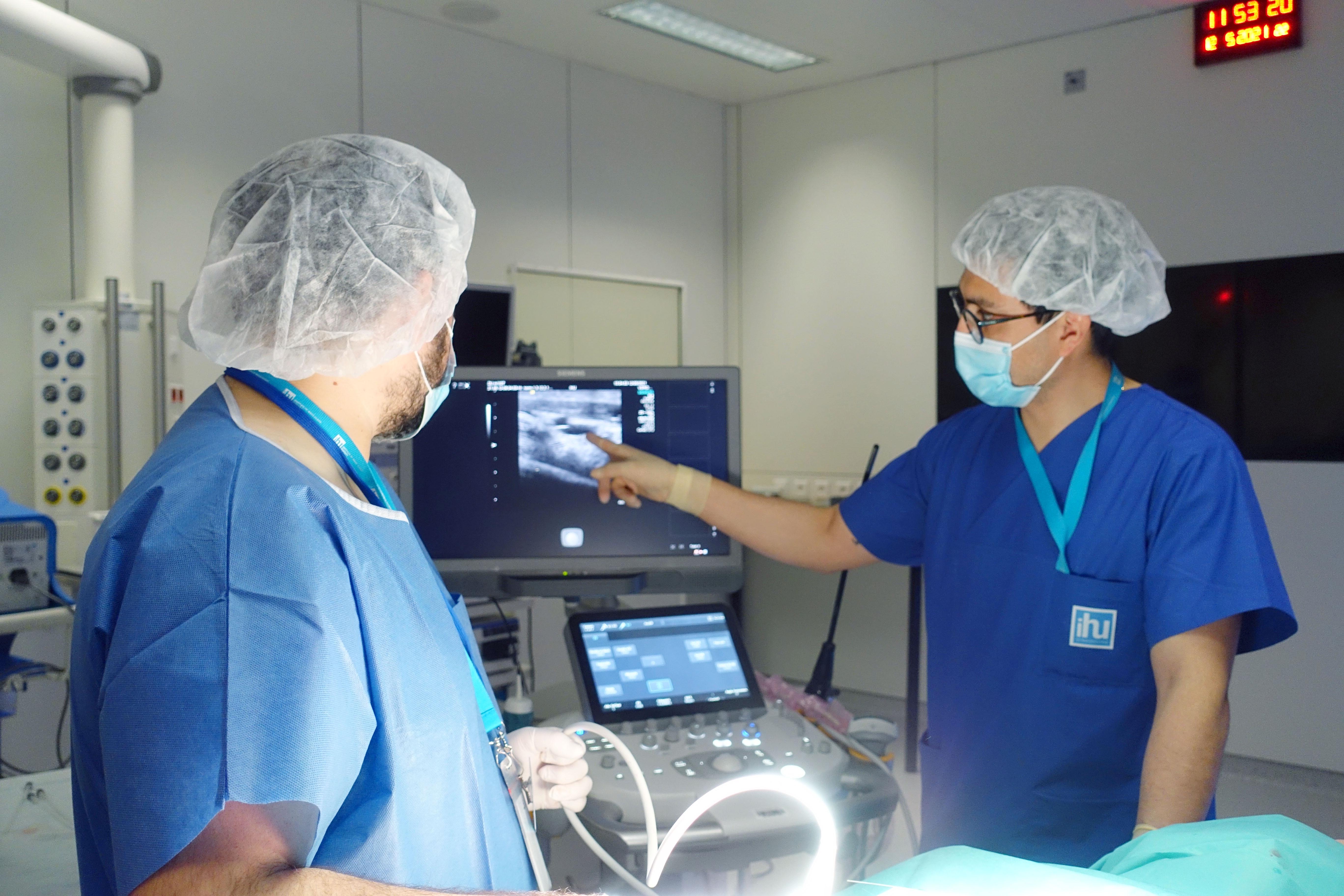Master's Degree
Image Guided-Therapy
Students
20 students accepted annually
Objectives
This 2-year Master program will stress the utility and importance of ultrasound in the workflow of the digestive surgeon and radiologist where it can become, along with CT and MRI, the eye of the practitioner to see and target the patient’s disease. The program covers the entire spectrum of diagnostic surgical and interventional radiology.
The curriculum is designed for trainees (radiologists or surgeons) to acquire the principles and advanced techniques in abdominal interventions in adults. These include image guided biopsies, central venous catheter insertion, percutaneous and endoscopic hybrid biliary interventions, percutaneous gastrostomy and jejunostomy, percutaneous abscess drainage and biopsy, percutaneous tumor ablative therapies and chemoembolization.
Theory
Access to high-quality courses designed by experts on the EVE e-learning platform
Practice
Access to a complete and coached training through innovative workshops: dry, ex vivo and in vivo.
Clinical
Access to our partner centers where you will be able to take part in surgical endoscopy or minimally invasive surgical procedures.

At the end of the program students will have
-
- Acquire a general fund of knowledge about disorders amenable to diagnosis and/or treatment by percutaneous image-guided techniques
-
- Understand signs/symptoms, pathophysiology and natural history of diseases amenable to image guided therapy and be able to apply this knowledge to explain indications, contraindications and risks of a percutaneous procedure as well as medical and/or surgical alternative/adjunctive therapies
-
- Acquire/improve the knowledge required to form a foundation in the practice percutaneous image guided procedures in a structured way under the mentorship of world leaders in the field with access to the newest technologies, techniques and platforms
Methods
Combine the best
learning methods
to learn, practice
and improve yourself
On-line
24/7
learning
platform with interactive
theoretical
and video sessions
Program
PHYSICS PRINCIPLES
This course begins with preliminary theoretical lessons that cover a broad range of ultrasound physics. We present the importance of understanding the physical basis and instrumentation of sonography.
BEST WAY TO DO US EXAMINATION
The degree of control of the operator does make ultrasound more operator dependent than other forms of imaging.
SPECIFICATIONS FOR INDIVIDUAL EXAMINATIONS
In this module we will present the echographic analysis of normal organs or abdominal structures and their main pathologies.
BILE DUCT DISEASES
The management of bile duct diseases requires accurate diagnosis & therapeutic decisions based on clinical presentation and findings.
ABLATION THERAPIES
In recent years, minimally-invasive treatment of liver tumors such as thermal ablation (RFA, MWA) has emerged as a first-line curative treatment approach for patients with small hepatocellular carcinoma (HCC) lesion
ACUTE PANCREATITIS
Acute pancreatitis is a common gastrointestinal disorder currently with a high prevalence of complications often requiring hospitalization. Therefore, minimally invasive management of acute pancreatitis is being increasingly utilized.
Prices
The program will not be offered for the 2025-2026 academic year.
No enrollment is possible. Stay tuned for future openings.
Administrative Registration fees
for the year 2024-2025
- Registration : 250 €
- CVEC (Student and Campus Life Contribution): 103 €
Education fees:
Only open as continuing training
- First year: 4000 €
- Second year: 4500 €
